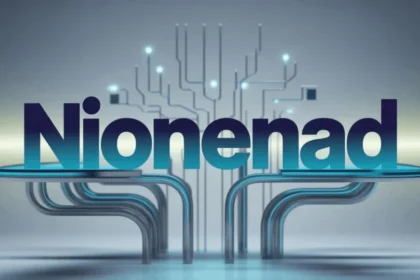Video games can provide fun and excitement. Have you ever wondered why they are so enjoyable? The answer lies in a chemical in our brains called dopamine.
Dopamine is often called the “feel-good” chemical because it makes us feel happy and rewarded. When we play video games, our brains release dopamine, which makes us want to keep playing. This reaction is similar to how we feel when we achieve something meaningful in life.
What is Dopamine?
Dopamine is a neurotransmitter, which is a type of chemical messenger in the brain. It helps send signals between nerve cells. Dopamine is crucial for many brain functions. It affects our mood, motivation, and feelings of pleasure. When you do something pleasurable, like eating your favorite food or winning a level in a video game, dopamine is released in your brain. This release makes you happy and encourages you to repeat that activity.
The brain’s reward system relies heavily on dopamine. It helps reinforce behaviors that are important for survival, like eating and socializing. That’s why we often feel good when we do enjoyable or rewarding activities.
The Science Behind Dopamine Release
When you do something enjoyable, your brain’s neurons release dopamine into different areas of your brain. This creates a feeling of pleasure and satisfaction. For example, when you win a level in a video game, your brain releases dopamine, making you feel happy and accomplished.
This release happens in a part of the brain called the “reward pathway.” This pathway includes several brain regions, including the ventral tegmental area (VTA), where dopamine is produced, and the nucleus accumbens.
Once released, dopamine travels to the nucleus accumbens, which is responsible for feelings of reward and motivation. This process encourages you to repeat the behavior that triggered the dopamine release.
Dopamine and Video Game Mechanics
Video game designers use different strategies to keep players hooked. One common method is the use of rewards. Games often give players small rewards frequently, like coins, points, or new abilities. These rewards make players feel happy and satisfied, which keeps the dopamine flowing and makes them want to keep playing.
Another technique is the use of challenges and achievements. Many games have tough levels or bosses that are hard to beat. When players finally overcome these challenges, they get a big dopamine rush. This feeling of accomplishment encourages them to keep playing and face even more difficult challenges.
Social elements in games also play a big role. Games that let you play with or against friends can make you feel a sense of community and competition. Winning against friends, for example, gives a huge dopamine boost, which makes multiplayer games very addictive.
Loot boxes and in-game purchases are another way games trigger dopamine release. The excitement and anticipation of getting something valuable or rare can make players buy loot boxes or spend real money on in-game items. This gambling-like mechanic is very effective in games like Blackjack Online, where the thrill of winning can be highly rewarding.
Video games can use these mechanics to keep players engaged for long periods, all thanks to the continual release of dopamine. Understanding these tactics can help players become more aware of why they’re drawn to games and perhaps find better ways to manage their gaming habits.
The Addiction Factor
Playing video games can be super fun but can also become a problem if you play too much. One reason for this is that when you play video games, your brain releases dopamine, making you feel happy and excited. This feeling makes you want to keep playing. You might play for hours and hours, even turning into an addiction, where you feel like you need to play video games all the time.
This addiction can have some adverse effects on your life. You might stop doing important things, and your sleep might suffer because you stay up late playing games.
Balancing Gaming and Dopamine Regulation
Maintaining a healthy balance between gaming and dopamine production is important. Here are some strategies to help you enjoy games without letting them take over your life:
- Set Time Limits: Decide how long you want to play each day and stick to that limit. This helps prevent gaming from taking up too much of your time.
- Take Breaks: Make sure to take regular breaks while playing. Stand up, stretch, and do something else for a while. This helps reduce the constant dopamine rush and gives your brain a chance to rest.
- Mix Activities: Don’t just play video games all day. Try to include other activities you enjoy, like reading, playing sports, or hanging out with friends.
- Prioritize Responsibilities: Make sure you get your important tasks done before you start gaming. This prevents gaming from interfering with your daily life.
- Stay Social: Don’t let gaming replace real-life interactions. Playing with friends online is fun, but make sure you also spend time with people face-to-face. Social interactions can also boost your mood.
- Be Aware: Track how gaming makes you feel. If you notice you’re starting to feel like you can’t stop or it’s affecting your life negatively, it might be time to take a step back and reevaluate your gaming habits.
By following these strategies, you can enjoy gaming while also keeping your dopamine levels healthy.





